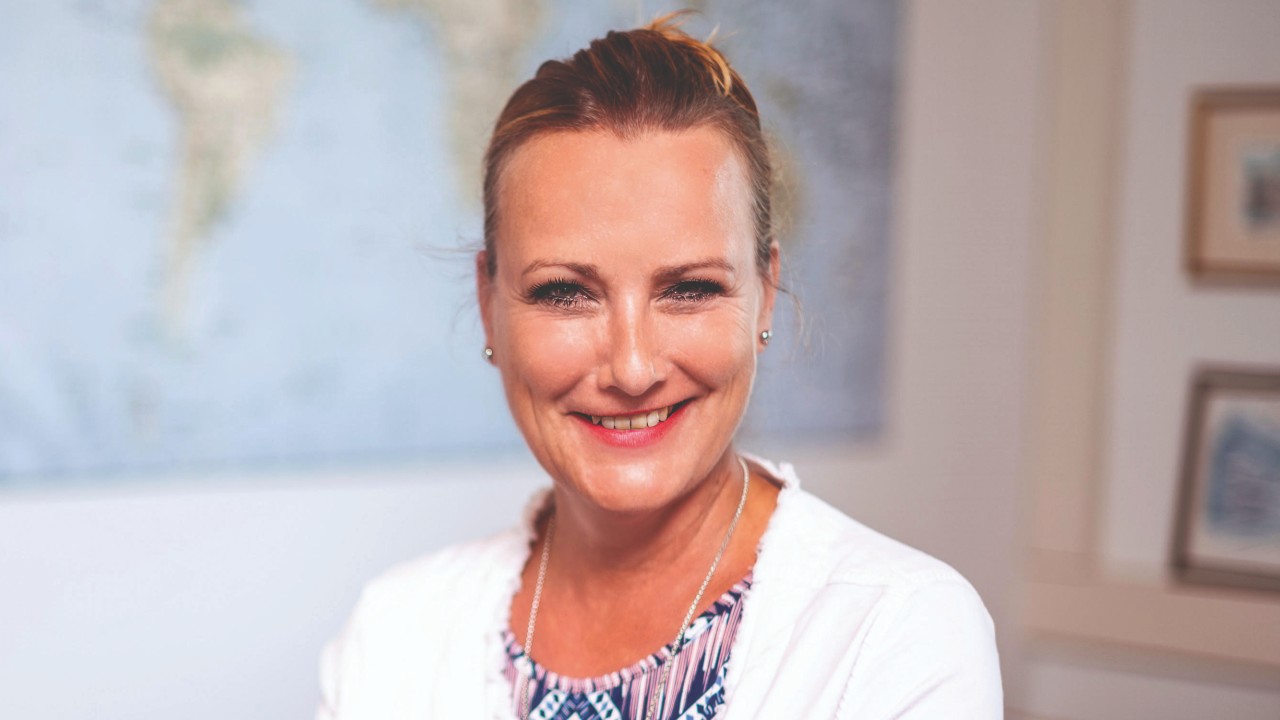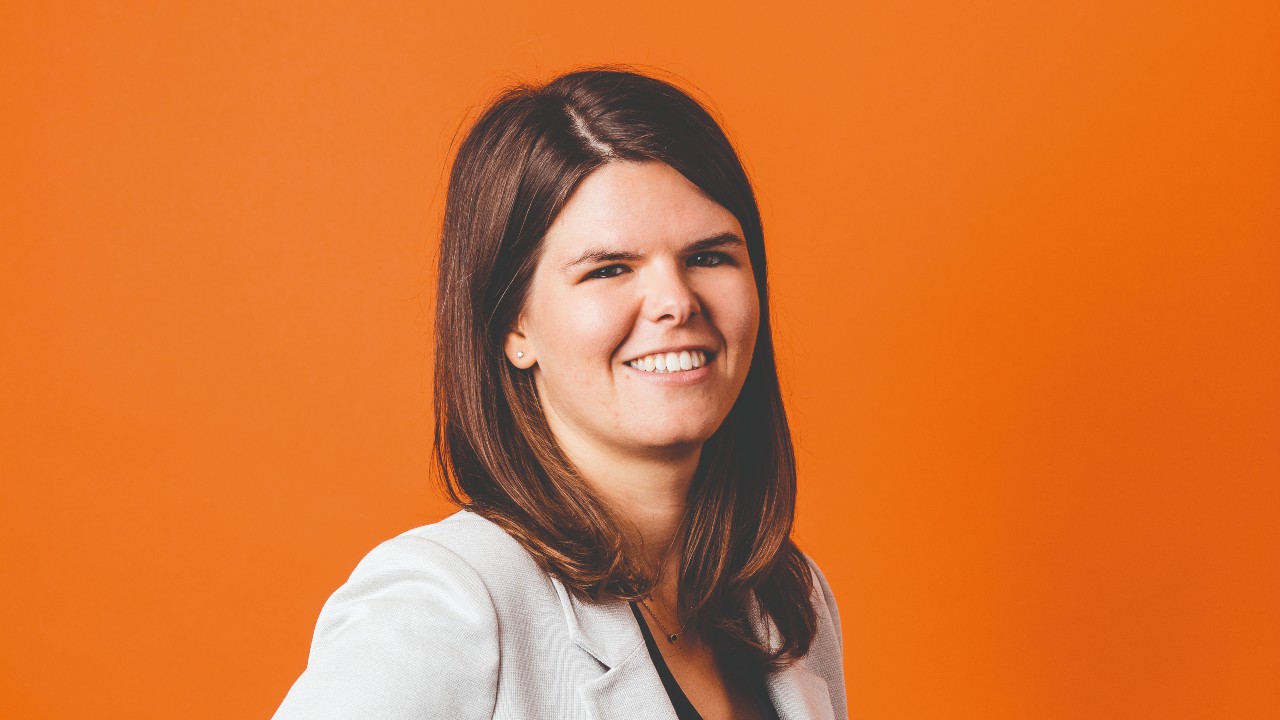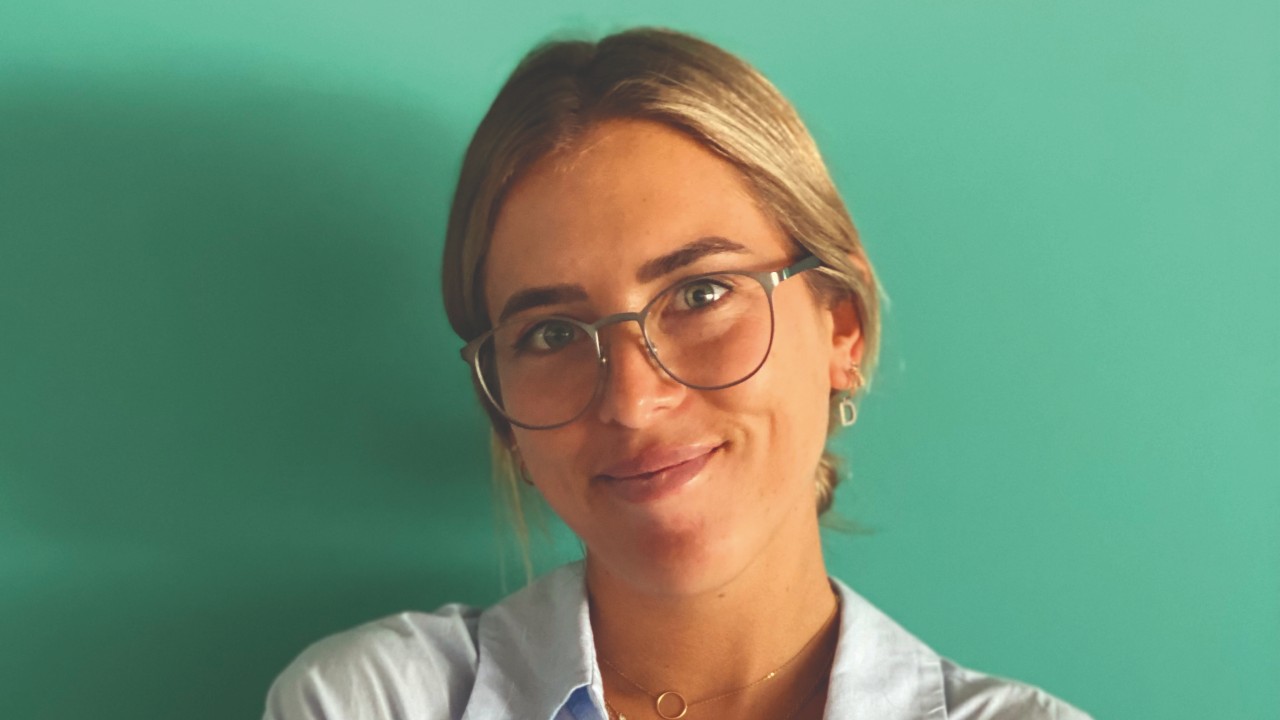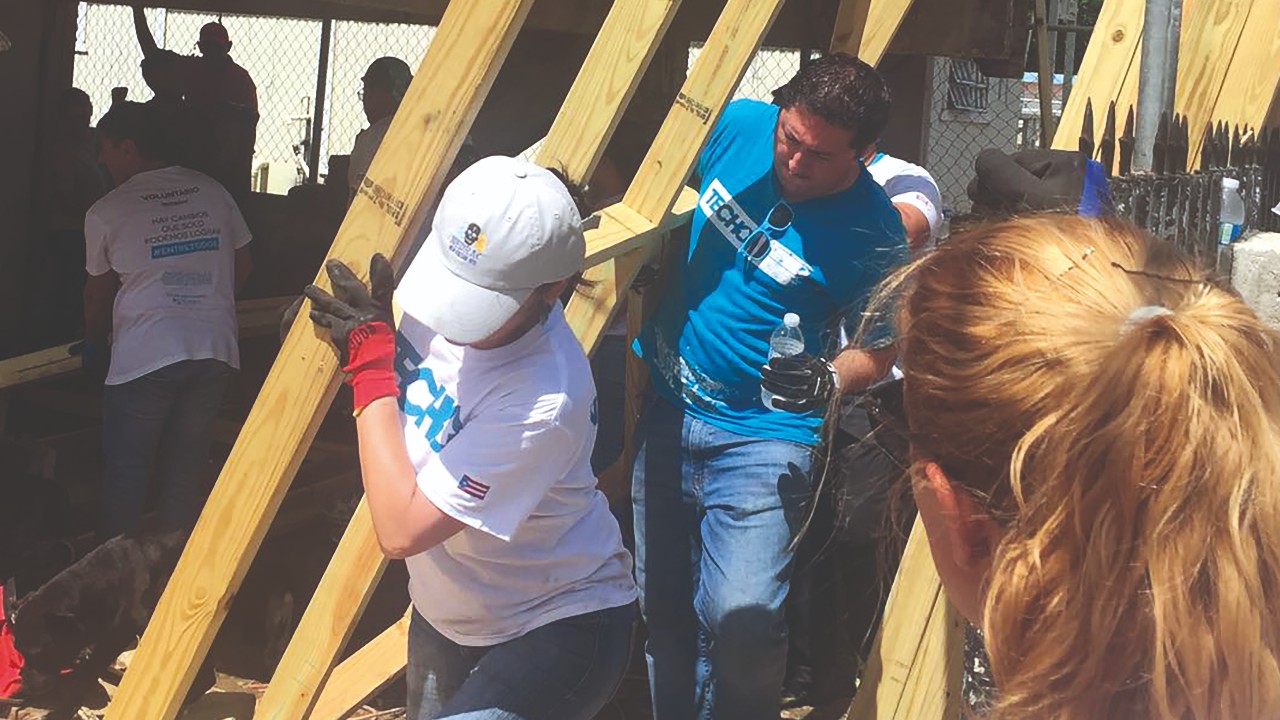FIDI Focus editor Dominic Weaver speaks to three industry leaders working in family firms about gender parity, the role of the next generation, and their own approaches to managing a modern moving business
Jutta Sobolak, of Sobolak International
‘We need to create dialogue and find solutions that satisfy both sides’
Jutta Sobolak developed a passion for moving at a young age. As she grew up, her mother and father were building the family moving business, known as Sobolak International today. While her brother may have been the family’s traditional first-choice successor to the business, he was not interested, she says, and – after graduating from school at the age of 19 – she began to work for the family business, forging her career by gaining experience in different departments of the company.
From learning how to deal properly with trucks by getting her truck driver‘s licence, to knowing the ins and outs of containers, customs and sales, and, finally, gaining other important qualifications. Being part of a family business has given her rapid opportunities for advancement that may not have been available to other women, says Sobolak.

However, as a result, she feels she has more to prove to the world. ‘Expectations for women are different,’ she says. ‘I really have to show my best.’
Sobolak has two children at home, who are now both in their early twenties. Her daughter is a full-time student and her son has a severe disability. Like many women, Sobolak has faced the challenge of finding a balance between home and work. ‘I got myself so organised to do this.’
The notion that women can’t handle the combined responsibility that comes with having a career and a family is ‘old thinking’, she says. ‘But it’s not easy. You have to be strong; you have to want it.’
The support of her family – including her mother and father, who are still involved in the business – and the company’s hard-working, fun-loving team have underpinned her ability to manage this process well.
Traditional structures and employment roles are pervasive in moving, says Sobolak, and while jobs such as truck driving and packing are done by men and women, physically demanding tasks, such as heavy lifting, are still ‘work for the men’, and generally not sought after by women. ‘We’ve never had a female candidate who wanted these jobs,’ she says.
While it is important to be realistic about the physical differences between men and women – including the monthly effects of the menstrual cycle – businesses need to work towards real equality of opportunity, where any and all positions are available to anyone who is able and willing to do them.
‘I am focused on the strategic development of the company and want to improve equality, particularly in management, where there are too few women,’ Sobolak says.
While the company offers training to its staff in a broad range of areas, access to jobs is often a societal and ‘political problem’, she adds, where long-standing views about what a man and a woman ‘should’ be doing can often restrict equal access to these positions from the outset.
‘It can make creating a balance impossible,’ she says. ‘There is still an old system in which the responsibility is mainly held by the men. Not only within our company, of course – this is worldwide.’
Sobolak says many businesses are now taking positive strides forward in gender equality, but they must take a cautious approach to implementing these important changes.
‘I am very happy that we have started a conversation about it, but it’s not easy, and we are only at the beginning,’ she says.
‘We really have to think about everything carefully, so we don’t make a mistake and make the situation worse. We now need to create dialogue and find good solutions that are comfortable for everyone; that satisfy both sides.’
Having well-balanced, diverse teams with a wide set of skills and outlooks will be essential in facing up to the emerging challenges of the business today, Sobolak concludes. These include tackling unparalleled difficulties in shipping, pricing, and other areas, but also transforming businesses in terms of sustainability and technology. ‘You have to have a special sense and feeling for what is going on and what is going to come,’ she says.
Isabelle Harsch, CEO of Harsch
‘I have done things differently because of my age rather than my gender’

Isabelle Harsch, CEO of third-generation, family-owned Swiss mover Harsch, joined the fine arts and household goods moving firm – set up by her grandfather 65 years ago – after graduating from law school in 2011.
Encouraged by father, Harsch knew from an early age that she wanted to run the business. She also recognised that, while her father was ‘very busy, often working the weekend’, he was doing work that he loved.
Harsch embarked on the company training programme, learning about – and taking part in – every side of the business, with the goal of taking over from her father in five years. She made good progress, however, and after just three years, her father said he was ready to retire after one more year.
The trust her father showed in her gave Harsch confidence. With his ongoing – but hands off (‘let me know if you need me’) – counsel, and the help of other advisers in the company, she set about building her team, and became CEO in 2015, at the age of 28.
Her father’s death, just a year and a half later, presented Harsch with one of her hardest challenges – how to deal with grief while still learning on the job.
One of her father’s legacies, however, was the importance of having good people to support her, and Harsch focused on bringing in the right staff. This included her mother – who joined the business in an official capacity, helping particularly with HR matters –and someone to oversee communications.
Harsch is delighted to be speaking about gender parity in the industry, ‘but it’s unfortunate it still has be discussed’, she says, adding that – within the context of the family business – being female has never been an issue. Hard work, commitment, and the ability to lead are what count, she says.
In fact, within the wider industry, it has been her comparatively young age that has been the root of some prejudices – but that has also given her a useful outlook.
Harsch becoming CEO has meant a gradual shift in the company’s approach, to incorporate more input and feedback from staff. This, she says, was recognition that ‘it’s not only me who has the answers’, and ‘because I was young, I had to learn from their experience, too’.
These methods have required communication with staff and supply chain partners to be stepped up, with Harsch ensuring that everyone understands why the company operates as it does – when new paperwork is needed, for example, or prices fluctuate, as they are currently. When everyone is kept well informed and involved, it helps acceptance of change, strengthens relationships, and increases staff retention.
Each year, the company releases its results to all employees, along with a commentary illustrating what the business has done well and what areas can be improved. Explaining the reasons for ‘difficult decisions’, such as redundancies, is part of this new authenticity. ‘If what people see and feel doesn’t match what they are told, you will lose those people,’ Harsch says.
Fostering diversity is also important for a forward-thinking company, she adds. ‘I try to bring people from different backgrounds, experience, ages and cultures. It creates a stronger team if you don’t all think the same.’
Harsch cites the recent ‘class of 2019’ all-women board of FIDI’s 39 Club (which she left this year) as a great example of progress within moving. ‘Five women, elected by their male and female peers,’ she says, ‘That is a good sign for the future of our industry.’
Coming together on industry boards and in other groups allows women to support one another, says Harsch. ‘We have to help each other defend our position, conditions and pay.
‘I see many men who aren’t afraid to ask for more, and maybe this contributes to the differences that are still there. But we can change ourselves.’ This is part of a woman’s responsibility to herself, adds Harsch – but it also demonstrates to others what they are capable of doing.
‘We have to try to be a model for other women,’ she says. ‘Then they can say, “yes, I can be a CEO, a leader or director. I can do that, too”.’
Daniela Krumdiek, business development manager of Peruvian mover Express Transports
‘We are horizontal leaders – we communicate with our collaborators and teach by example’

Having worked for a variety of companies – including Red Bull, retailer Ola y Montaña Group, and beauty firm Yanbal – Daniela Krumdiek, of Peruvian mover Express Transports, started with the family business her father ran since 1978, after coming to the realisation that she needed a career change.
‘I remember one day, sitting with my dad in our backyard and letting him know I wanted to quit my job for a new challenge,’ she says. She attended LACMA’s Punta del Este conference just three weeks later.
‘I remember arriving at LACMA for the first time and not knowing anything about the moving business – and I was so nervous I didn’t stop coughing the whole conference,’ she says. ‘But on that trip, I fell in love with the industry.’
Her brother joined the company too, and manages the operations side of the business, while Daniela oversees the commercial department. ‘It has been key that we have different roles within the company,’ she says, ‘and we make a great team.’
She adds that her father has played an important part in fostering this partnership. ‘My dad has played a key role in me and my brother working well together. He has never treated us differently – always listening to both our ideas and treating us like a team,’ she says.
Krumdiek’s role within the company has developed alongside her skill set. Starting as an import coordinator – ‘one of the most stressful times of my life, but I loved it’ – she quickly learnt the basics of the business and was able to begin making her mark.
‘I changed processes and added some in areas where they were needed,’ she said. ‘After that, I started managing projects, such as our new website, branding and a new moving system.’
Krumdiek has also focused on the company’s pricing (RFPs) and revenue, led the traffic department, and managed agents, travelling to industry conferences three times or more every year.
As if gaining all this experience wasn’t enough (Krumdiek runs a side business selling casual clothing with a friend), she also travelled to Madrid to study for a Master’s degree in marketing and sales management. She continued to work throughout and took on the additional role of business development manager upon her return to Peru.
The development of her working life has followed ‘a really natural, smooth path,’ she says. ‘I have never been afraid of change, so I just propose the projects I have in mind – and I have a great team alongside me that is well disposed to change, too.’
Gaining employees’ trust has been key, as have values such as ‘empathy, patience and humility’.
It’s a notable difference from the more hierarchical approach to management of previous generations – across this and other industries, too – and is perhaps the most significant indicator of a business equipping itself to face modern challenges in a modern way.
Krumdiek says she has always felt equal in the business – and the wider industry, too. ‘I do feel there is gender equality. At conferences, I’ve also felt we have the same opportunities,’ she says, adding that LACMA’s charity initiative to build homes for disadvantaged people in Florida, Mexico and Puerto Rico sees men and women embarking equally on the physical work.
She joined the LACMANext board in 2017 and this year became its president. ‘I’ve never felt that being a woman means I’m not able to carry positions like that,’ she says. ‘And I’ve represented Express at conventions for six years and haven’t met an agent who didn’t take me seriously.’
Having said this, she acknowledges ‘there are agents out there who prefer to do business with men only – and there are groups in the industry that are “men’s clubs”’.
However, she adds this tradition is dwindling: ‘I am really lucky to have been born in this generation, where we don’t feel these differences.’


